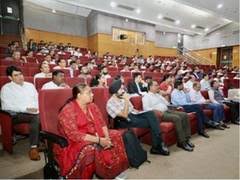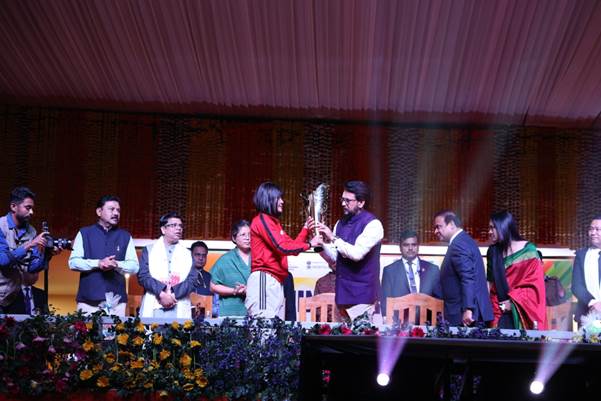The Directorate General of Health Services (DGHS) and the Union Health Ministry, along with experts, reviewed the recent cases of the Chandipura virus and Acute Encephalitis Syndrome (AES) in Gujarat, Rajasthan, and Madhya Pradesh.
 A Central multidisciplinary team has been sent to Gujarat to aid in the epidemiological, environmental, and laboratory investigations of AES cases. Emphasizing vector control, hygiene, and awareness as key measures, they aim to combat the disease effectively.
A Central multidisciplinary team has been sent to Gujarat to aid in the epidemiological, environmental, and laboratory investigations of AES cases. Emphasizing vector control, hygiene, and awareness as key measures, they aim to combat the disease effectively.
Prof (Dr.) Atul Goel, DGHS, Union Health Ministry, and Director of NCDC, alongside experts from AIIMS, Kalawati Saran Children’s Hospital, and NIMHANS, as well as officials from Central and State surveillance units, conducted a review of the Chandipura virus and AES cases in Gujarat, Rajasthan, and Madhya Pradesh. They concluded that only a small proportion of AES cases are due to infectious agents. They stressed the importance of comprehensive studies on AES cases reported in Gujarat.
A team from NCDC, ICMR, and DAHD is being deployed to support Gujarat in these investigations.
Acute Encephalitis Syndrome (AES) encompasses a range of neurologic manifestations caused by various viruses, bacteria, fungi, parasites, spirochetes, and toxins. Known viral causes include JE, Dengue, HSV, CHPV, and West Nile.
The Chandipura Virus (CHPV), part of the Rhabdoviridae family, causes sporadic cases and outbreaks in western, central, and southern India, particularly during the monsoon season. It is transmitted by vectors like sand flies and ticks.
Effective measures against the disease include vector control, hygiene, and public awareness. The disease primarily affects children under 15, presenting with febrile illness and potentially resulting in death. There is no specific treatment for CHPV; management is symptomatic. Timely referral to designated facilities can improve outcomes for suspected AES cases.
Since early June 2024, Gujarat has reported 78 AES cases among children under 15. As of July 20, 2024, 75 cases are from 21 districts in Gujarat, 2 from Rajasthan, and 1 from Madhya Pradesh, with 28 deaths reported. Of the 76 samples tested at NIV Pune, 9 were positive for Chandipura Virus (CHPV), all from Gujarat, along with 5 associated deaths.




